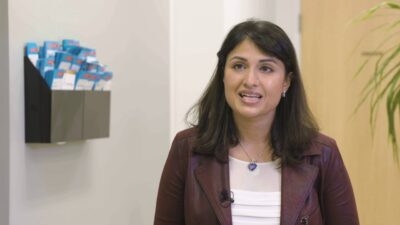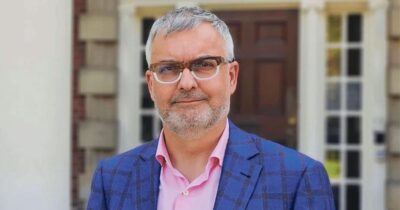Paul Tuns:
An Ontario coroner’s committee revealed that one in fifty euthanasia deaths in the province violated so-called safeguards to protect vulnerable patients and that they were not offered medical or social supports that may have encouraged people to eschew choosing Medical Assistance in Dying.
The MAiD Death Review Committee is a 16-person committee of medical professionals, social workers, ethicists, lawyers, and disability experts that was formed in January 2024 to review every euthanasia death in Ontario and identify trends in medicalized killing.
In 2023 there were 4644 euthanasia and physician-assisted suicides. If two per cent were not properly supported or had other irregularities, 93 patients were killed by the MAiD regime.
Other irregularities include approval for MAiD by assessors before they were sure of the medical condition of the patient or which medical condition had prompted the euthanasia request. Federal law requires that patients be offered information about proper treatment, pain management, and social supports before being approved for a MAiD death, although patients need not accept treatment.
On Oct. 17, the coroner released three reports on euthanasia, with two more expected before the end of the year.
In one report, six cases were profiled that illustrated how some patients chose euthanasia because of their social conditions. One quadriplegic man in his 40s sought a medically aided killing because he was unable to live independently without social support. A man in his 40s with gastric ulcers and a history of mental illness had attempted suicide a year before accessing MAiD. Another man with inflammatory bowel disease, alcohol and opioid addictions, and a history of suicidality, was offered MAiD during a psychiatric assessment. In another case, a woman with extreme chemical sensitivities who could not find suitable housing was approved for euthanasia.

Dr. Romona Coehlo said the findings of the MAiD Death Review Committee validate concerns from euthanasia critics that patients are being euthanized due to a lack of social supports rather than their medical conditions.
Dr. Romona Coelho, a London physician and a member of the committee, said “to finally have a government report that recognizes these cases of concerns is extremely important.” She said, “we’ve been gaslit for so many years when we raised fears about people getting MAiD because they were poor, disabled, or socially isolated.”
Overall, the committee found that while 90 per cent of patients requesting euthanasia and assisted-suicide were offered treatment to relieve their physical pain, only 41 per cent of cases included offers of disability or mental health supports, and only 24 per cent of cases included community supports such as housing or income assistance. In one of the case studies, the committee questioned whether physicians made sufficient attempts to control the MAiD requestor’s pain. In one case the committee criticized a physician who picked up and drove his patient to the location where he was medically killed, a possible violation of professional boundaries which the committee said might have “created pressure and gave rise to the perception of hastening a person towards death.”
The report found that some patients face “potential coercion” and “undue influence” from physicians who counsel them on euthanasia.
Not all the findings were unanimous, with some committee members supportive of the woman with chemical sensitivities being euthanized due to lack of proper housing.
While the law requires that assessors be an expert in the medical condition prompting the euthanasia request or consult a physician or nurse practitioner who is, such expertise was not sought in 1.7 per cent of euthanasia cases. Several members of the MAiD Death Review Committee said that such figures raised “legislative concerns,” a euphemism for potential violations of law in administering euthanasia.
While the reports said “only a small number of MAiD deaths in Ontario have identified concerns,” Dr. Dick Huyer, Ontario’s chief coroner, said his office “consulted with the police” but he was unaware of any criminal cases brought against physicians related to euthanasia or assisted-suicide deaths.
The committee made several non-binding recommendations to the federal and provincial governments as well as professional regulatory bodies and the Canadian Association of MAiD Assessors and Providers (CAMAP). Several committee members said a “paradigm shift” is needed in Canada’s Medical Assistance in Dying regime that prioritizes providing the best medical care and social supports for people seeking euthanasia.
David Shannon, a lawyer who suffered spinal cord injuries four decades ago and who served on the committee, said he supports the creation of an interdisciplinary committee of experts from various backgrounds that review Track 2 requests – MAiD killing of patients whose deaths are not reasonably foreseeable – before they are approved by a CAMAP. He said that this new committee could determine if the request to be medically killed was “coming from a time of desperation or incidental pain.”
Dr. Sonu Gaind, a professor of medicine at the University of Toronto, welcomed the coroner’s reports, saying it raised alarms about the handling of mental health conditions among those seeking euthanasia. “What we are doing is the opposite of suicide prevention,” he told the Associated Press.

Trudo Lemmens, professor of health law, said euthanasia as practiced does not prioritize protecting vulnerable patients.
Trudo Lemmens, professor of health law and policy at the University of Toronto, told the Associated Press that the report suggests Canada is “unwilling to curtail practices that appear ethically problematic,” adding, “either the law is too broad, or the professional guidance is not precise enough.”
One of the committee’s recommendations was that physicians and nurse practitioners be provided more guidance on the law regarding euthanasia counselling to patients who are not terminally ill.
Lemmens said the current MAiD regime might suggest protecting “our most vulnerable citizens” is not “a priority” in the Canadian health care system.
Other recommendations on best practices for MAiD “assessors and providers” include consideration of multiple medical specialties to establish differential or exclusionary diagnoses, evaluate the reversibility of the conditions, and identify best potential treatments” and that “clinical evaluation should be well-documented to include each of these items.” It also recommended that euthanasia practitioners should strongly consider psychiatric assessment when a person is requesting MAiD with a complex medical condition and concurrent mental illness” in order “to consider the full range of psychiatric diagnoses and psychiatric history” and “evaluate suicidal ideation within the MAiD assessment process.” The committee said the process should “explore whether additional psychological and/or socioeconomic concerns are factors impacting the request for MAiD” and that attempts be made “to ameliorate socioeconomic factors that may additionally contribute to suffering.”
To help ensure these practices are followed, the committee advised that the Ontario Ministry of Health revise the OHIP Fee Schedule for doctors that reflects “the enhanced role of navigating Track 2 safeguards and/or cases with complex conditions, including the time required for retrieval and review of relevant medical records, engaging in necessary discussions with the requestor’s care team members, and providing expert care.”
Alex Schadenberg, executive director of the Euthanasia Prevention Coalition, welcomed the reports and said he hoped the various levels of government and professional organizations heed the committee’s advice. He further noted that the reports indicate that legal authorities have cause to become involved in MAiD deaths that are not following the law.




